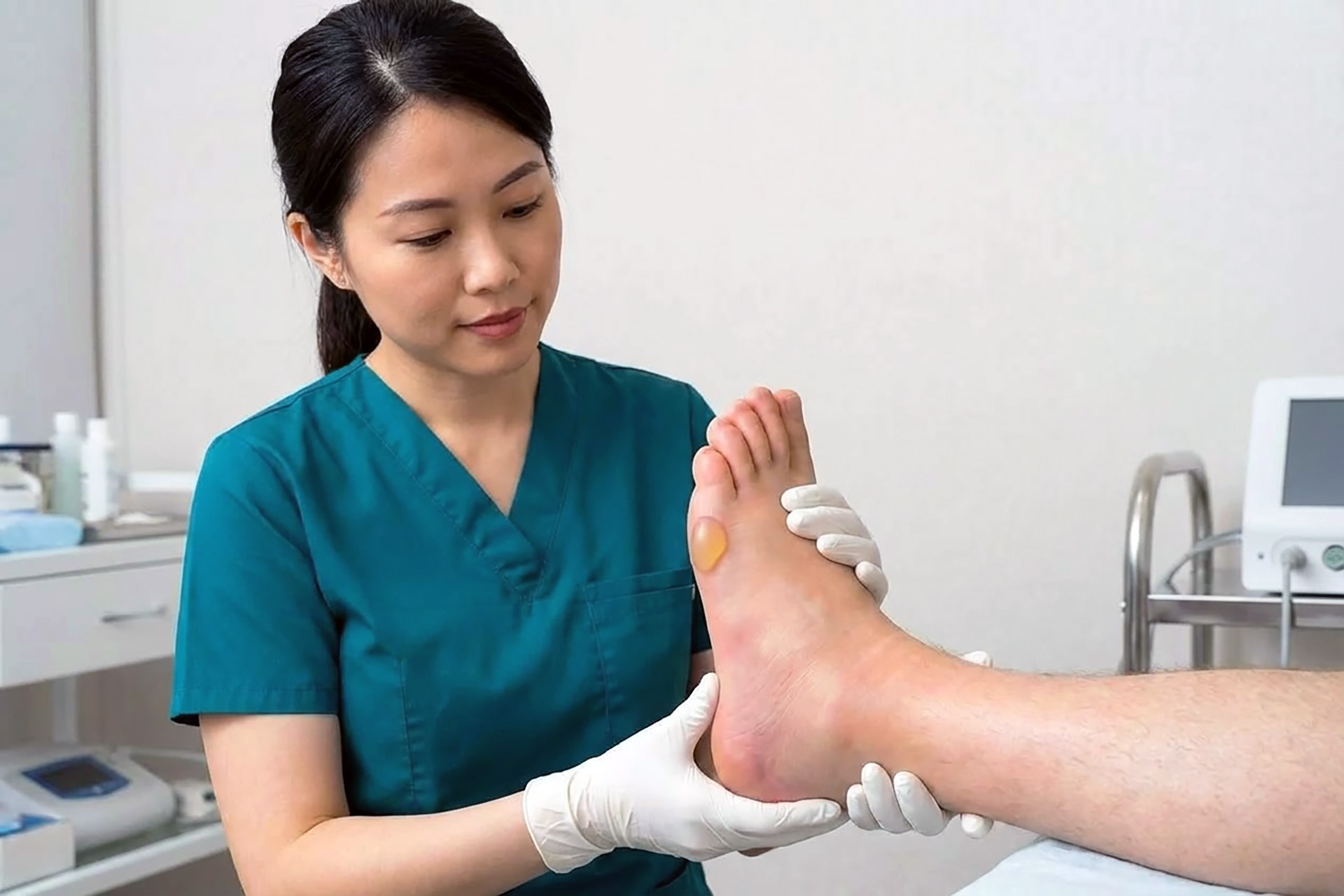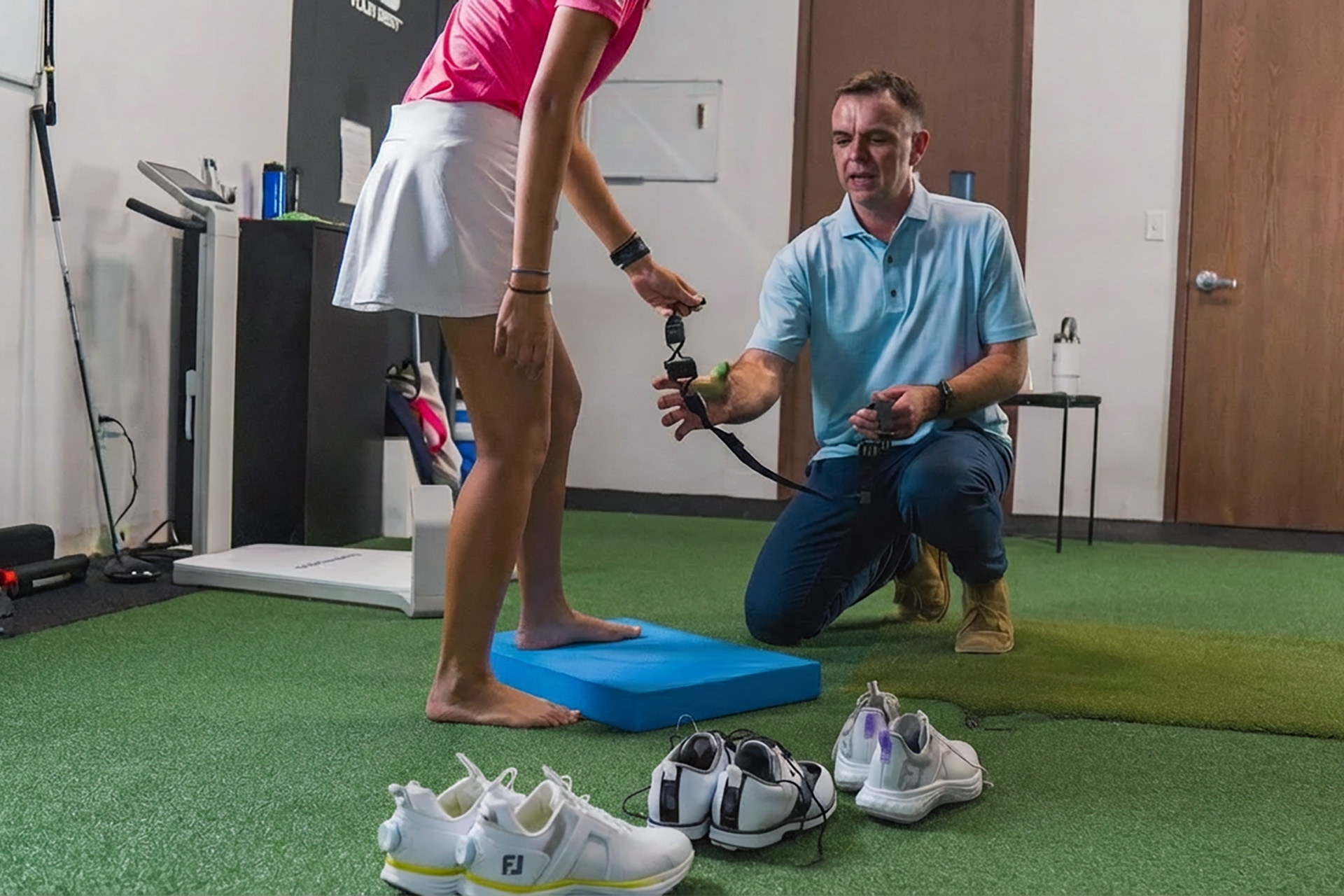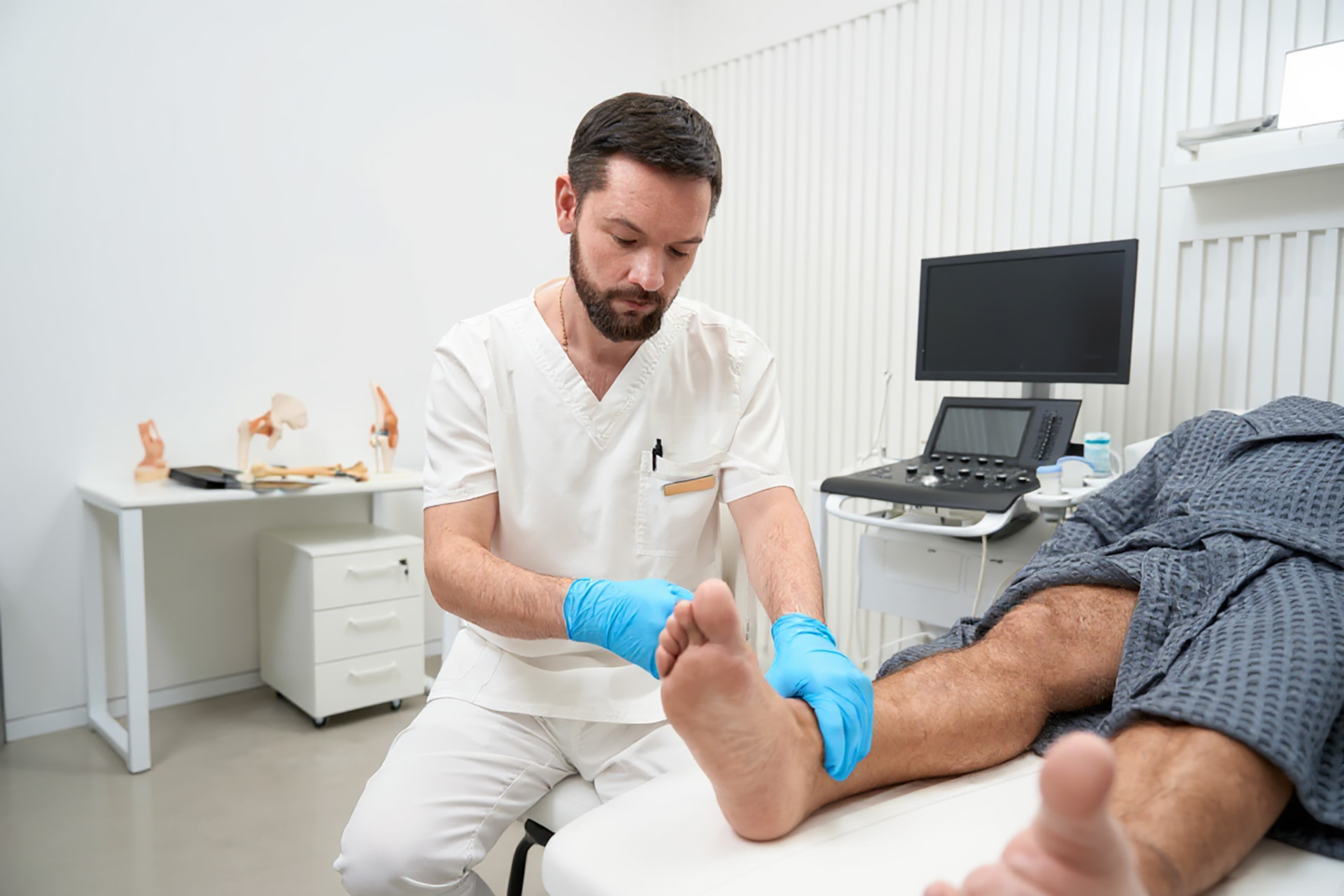Diabetes can profoundly affect a child’s foot health, potentially leading to a range of complications known collectively as ‘diabetic foot’. Without proper management, these conditions can result in severe foot problems. Paediatric podiatry plays a vital role in preventing and managing these issues, enabling children with diabetes to maintain active, healthy lifestyles.
Understanding Diabetic Foot in Children
Diabetic foot in children stems from chronically elevated blood glucose levels, which can damage nerves and impair blood flow to the feet. This combination makes wound healing difficult and increases the risk of infection. Early detection and management are crucial to prevent serious complications such as ulcers or, in extreme cases, amputation.
Diabetic foot in children is a complex condition stemming from the long-term effects of diabetes on the lower extremities. Chronically high blood glucose levels can damage nerves, leading to diabetic neuropathy, which reduces sensation and alters proprioception. This nerve damage makes it difficult for children to feel pain, heat, or cold in their feet, increasing the risk of unnoticed injuries. Simultaneously, diabetes can cause peripheral arterial disease, impairing blood flow to the feet.
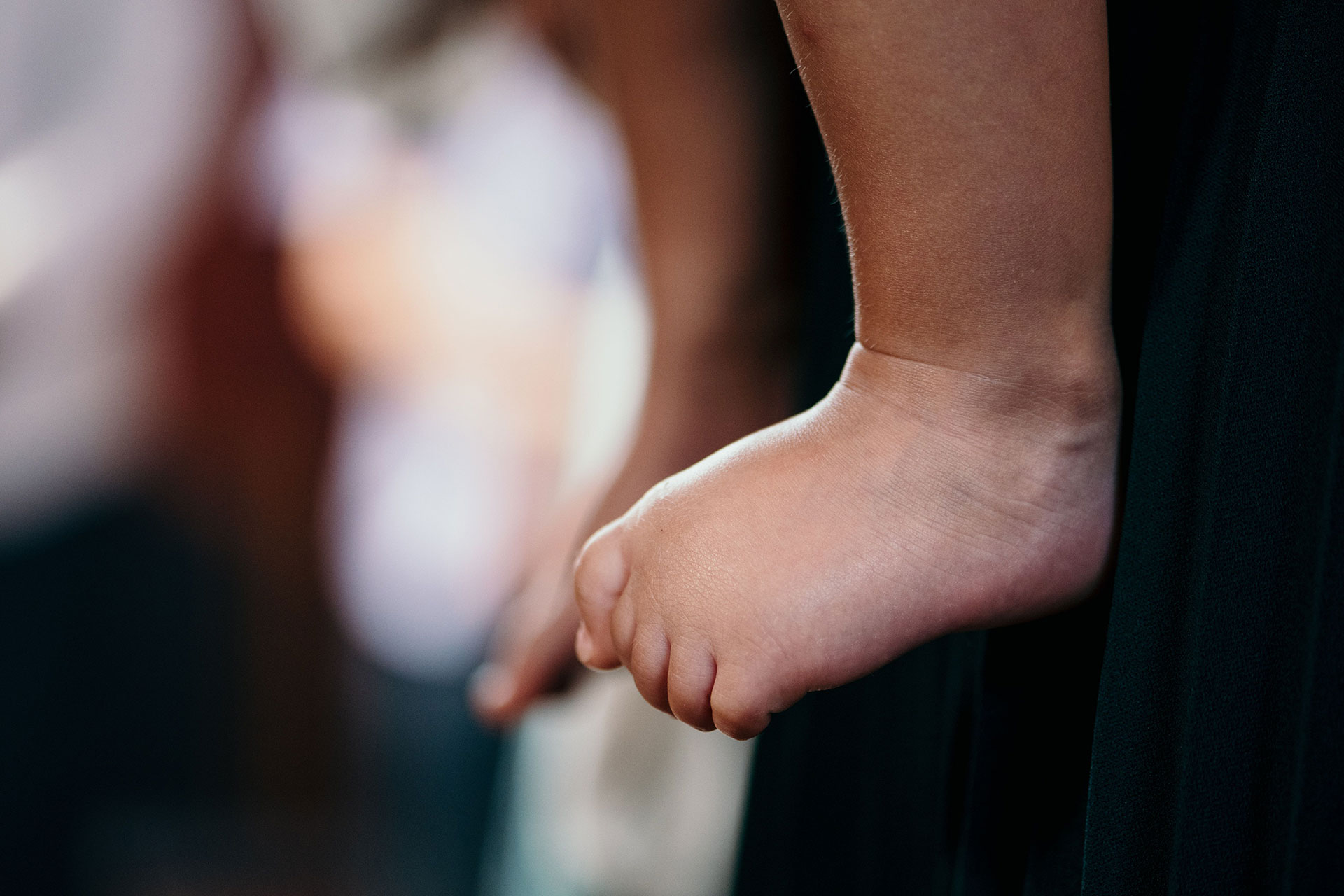
This combination of neuropathy and poor circulation creates a high-risk environment where minor injuries can escalate into serious health threats. The condition is further complicated by diabetes-related immunopathy, which compromises the immune system and slows healing. Additionally, high blood sugar can lead to dry, cracked skin, providing potential entry points for infections. Early detection is crucial, as children may not experience or report pain due to neuropathy.
Management strategies focus on strict glycemic control, proper foot care for kids and hygiene, appropriate footwear, and prompt treatment of any foot injuries. By understanding these mechanisms and implementing proactive care, it’s possible to significantly reduce the risk of severe complications and maintain long-term foot health in children with diabetes.
Pivotal Role of Pediatric Podiatry
Paediatric podiatrists specialise in children’s foot care and are uniquely qualified to address the challenges posed by diabetic foot conditions in young patients. Their expertise contributes to several key areas:
- Diabetic Foot Screenings: Regular screenings are essential for early detection of nerve damage, skin changes, and other foot abnormalities that may not be immediately apparent. Timely identification enables prompt treatment, potentially preventing the progression of complications.
- Footwear Assessments: Proper footwear is crucial in managing diabetic foot. Paediatric podiatrists evaluate the fit and function of a child’s shoes to ensure adequate support and prevent undue pressure points. Well-fitted shoes with appropriate cushioning can significantly reduce the risk of blisters and sores, which can become serious issues for children with diabetes.
- Custom Orthoses: Some children require custom orthoses to manage diabetic foot effectively. These specially designed shoe inserts support the foot’s natural shape, evenly redistribute pressure, and reduce stress on vulnerable areas. By promoting proper foot alignment, orthoses can decrease the risk of foot deformities and enhance overall foot function.
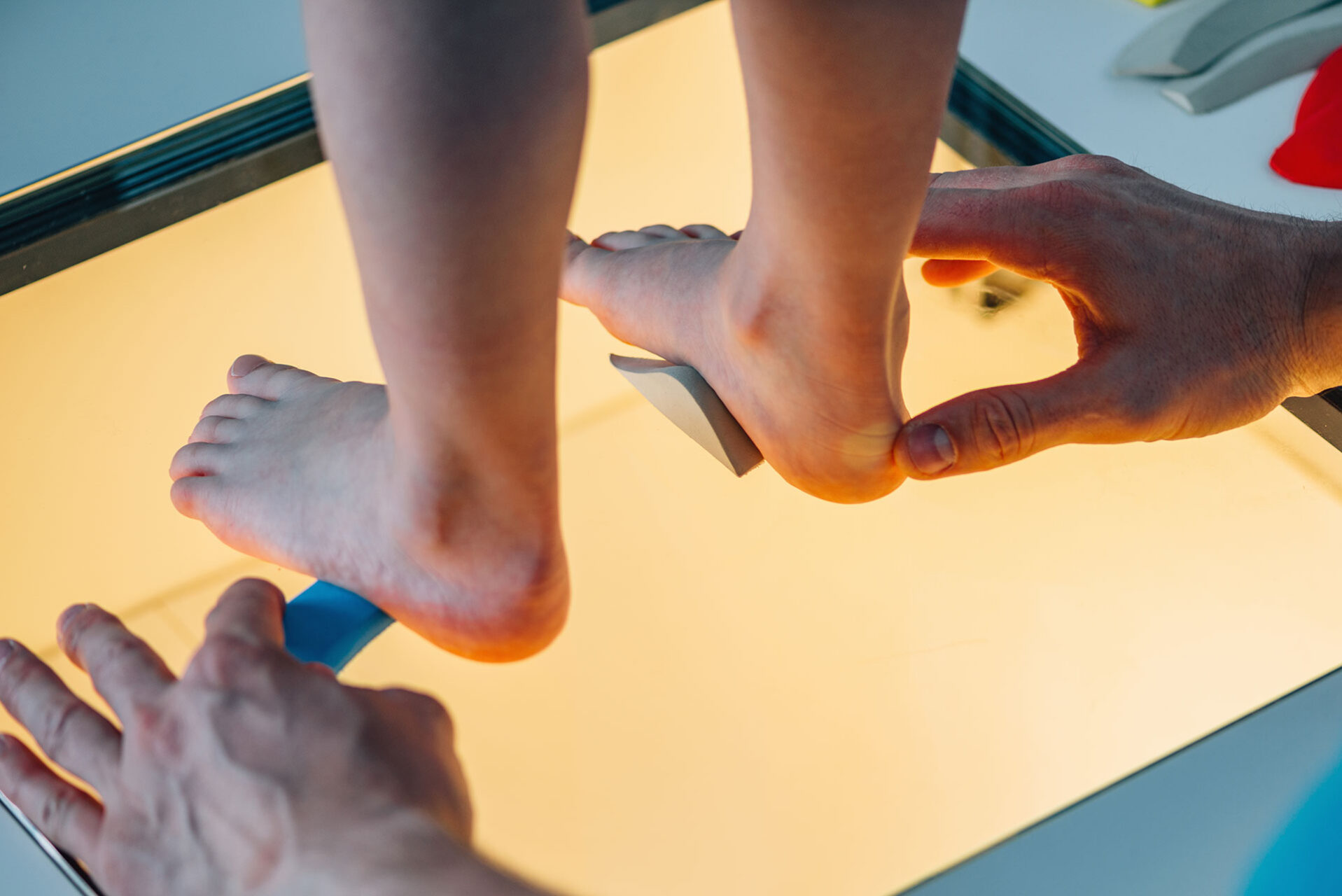
Home Care Strategies for Diabetic Foot
Complementing professional care, parents can implement several strategies at home to manage their child’s diabetic foot:
- Daily Inspections: Examine your child’s feet daily for cuts, blisters, redness, or swelling. Early detection of these signs can prevent serious infections.
- Hygiene: Instil the importance of foot hygiene. Daily washing with mild soap and lukewarm water, thorough drying (especially between toes), and applying suitable moisturiser can maintain skin health and prevent cracks.
- Nail Care: Trim nails straight across and file edges to prevent ingrown toenails, which can lead to infections.
- Encourage Healthy Habits: Proper diet and regular exercise are crucial for diabetes management. Please encourage your child to maintain a healthy weight to reduce pressure on their feet.

Paediatric podiatry is indispensable for kids with diabetic foot. It offers tailored treatments that address both immediate concerns and long-term health. By combining professional podiatric care with diligent home management, parents can significantly reduce the risk of serious foot complications in their children with diabetes.
If you observe signs of diabetic foot in your child or wish to begin a preventive care regimen, schedule a paediatric podiatry appointment with The Foot Practice today. Our specialised paediatric podiatrists are dedicated to ensuring optimal foot health for your child.




